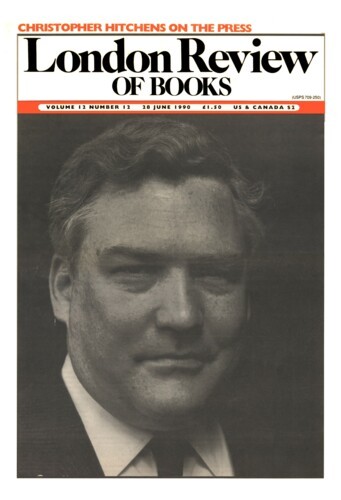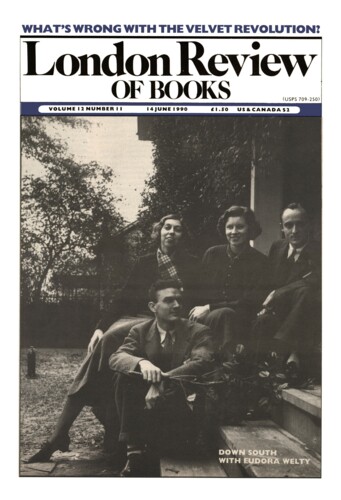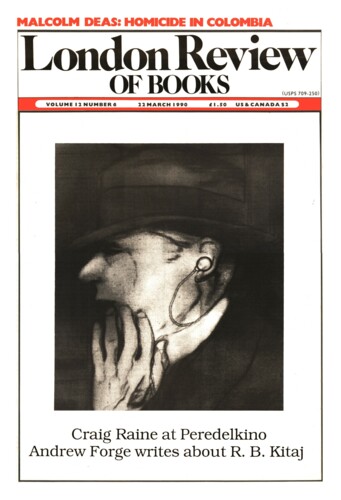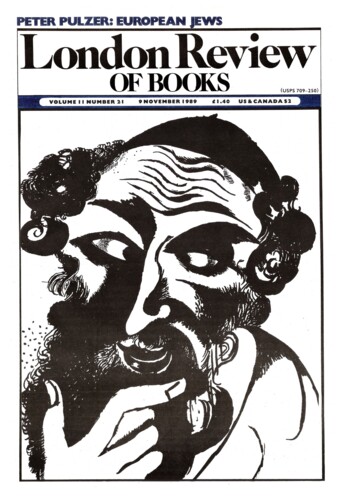Deep down
Julian Symons, 28 June 1990
What is it really about, and why was it written like this? The questions are never unreasonable when confronted with works that suggest the possibility of other meanings present beneath the surface level of realism, and when a reader has to decide whether suggested profundities really exist or in fact resemble what Eliot in old age called his notes to The Waste Land, an exhibition of bogus scholarship.




